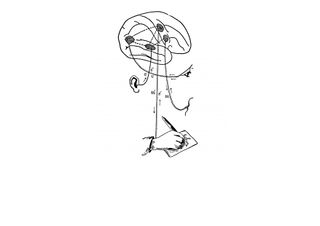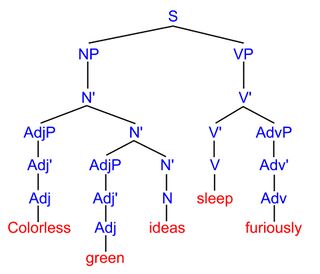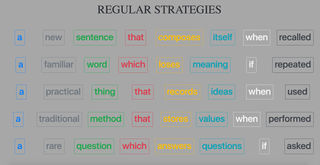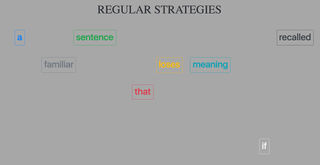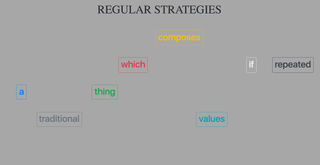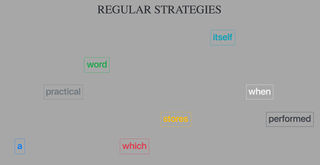Contents
Description[edit]
An app that makes aphoristic sentences to print and display in the work space. Its use is not limited to this space, but this is taken as a departure point for testing. The app borrows from a selection of words within a limited syntax and creates new meanings in the process.
Ambiguity[edit]
Inspiration comes from ideas of syntactic ambiguity and lexical ambiguity, which are areas of linguistic study interested in sentences that may be read in several different ways. Ambiguity comes from both lexical and syntactic diversity, put simply, the range of diversity in both the meanings that words can point to, and also how the construction of a sentence influences a diversity of readings.
Lexical Ambiguity[edit]
An example of lexical ambiguity is the "Buffalo buffalo Buffalo buffalo buffalo buffalo Buffalo buffalo" sentence, first appearing in 1967 in Beyond Language: Adventures in Word and Thought by Dmitri Borgmann.
This particular sentence uses the word "buffalo" as 3 discrete components:
1. A proper noun (meaning the city of Buffalo in upstate New York).
2. A verb (meaning to bully - an uncommon spoken use, but familiar to North American English speakers)
3. A common noun (meaning a kind of bison indigenous to certain parts of North America)
A fluent speaker of a language parses the components of an utterance, often adding contextually implied meanings that may be common in their vernacular. So the sentence (particularly in the North American town of Buffalo) can be read as:
Buffalo buffalo (Buffalo from the town of Buffalo)
Buffalo buffalo [that] (other buffalo from Buffalo) buffalo (bully)
[themselves] buffalo (bully)
Buffalo buffalo (buffalo from Buffalo)
This is but one of many extrapolations that can be made from the combination of words in this sentence. Other readings include:
- Buffalo buffalo (the animals called "buffalo" from the city of Buffalo) [that] Buffalo buffalo buffalo (that the animals from the city bully) buffalo Buffalo buffalo (are bullying these animals from that city).
- [Those] buffalo(es) from Buffalo [that are intimidated by] buffalo(es) from Buffalo intimidate buffalo(es) from Buffalo.
- Bison from Buffalo, New York, who are intimidated by other bison in their community, also happen to intimidate other bison in their community.
- The buffalo from Buffalo who are buffaloed by buffalo from Buffalo, buffalo (verb) other buffalo from Buffalo.
- Buffalo buffalo (main clause subject) [that] Buffalo buffalo (subordinate clause subject) buffalo (subordinate clause verb) buffalo (main clause verb) Buffalo buffalo (main clause direct object).
- [Buffalo from Buffalo] that [buffalo from Buffalo] buffalo, also buffalo [buffalo from Buffalo].
Syntactic Ambiguity[edit]
Examples of this are diverse, including famous sentences such as Noam Chomsky's famous "Colorless green ideas sleep furiously". This type of sentence (as well as many other examples) introduce the idea of syntactic ambiguity. Chomsky's sentence has correct grammar - all the components are there - but it has no apparent meaning.
Regular Strategies[edit]
Regular Strategies is an app that produces sentences based on random modelling of sentences. Each sentence has the same grammatical structure, each part of speech has the same function in the parse tree. An idea is to perhaps allow users to input values specific to their circumstances, and from this generate the affirmations. These can then be printed to the workplace (either as a screensaver, or as a poster).
